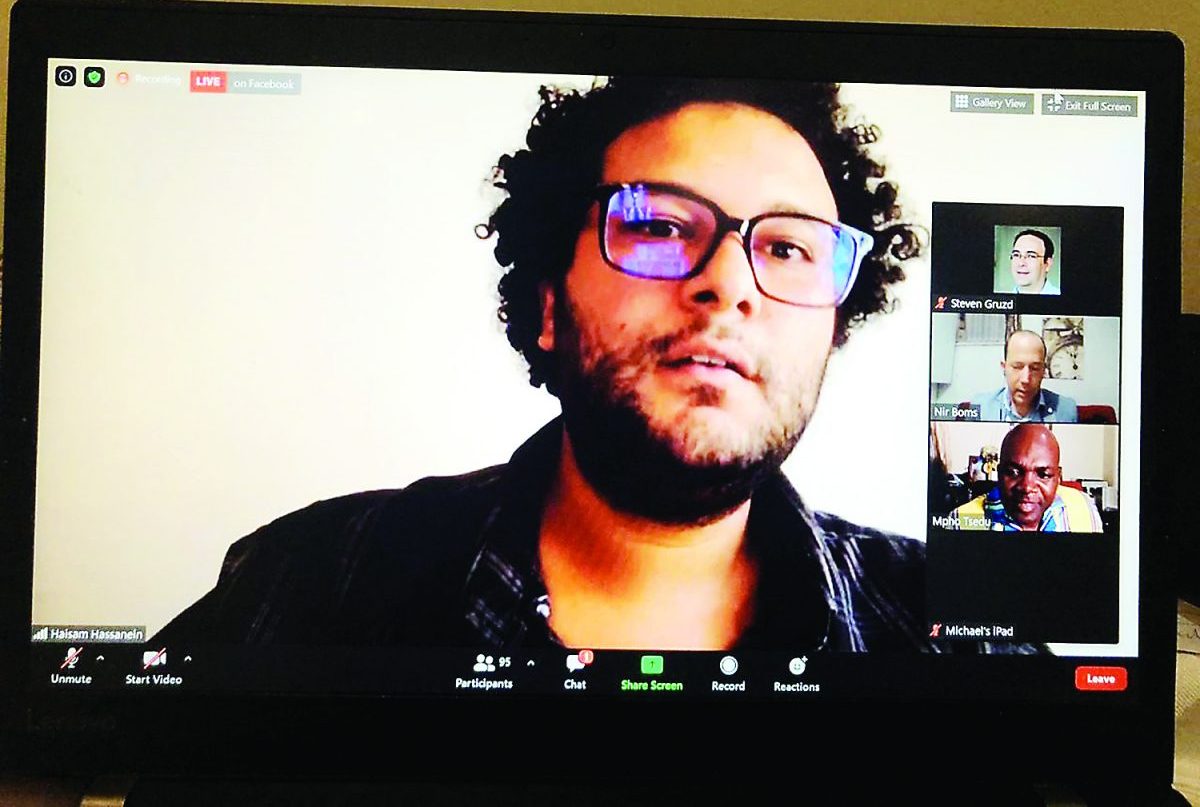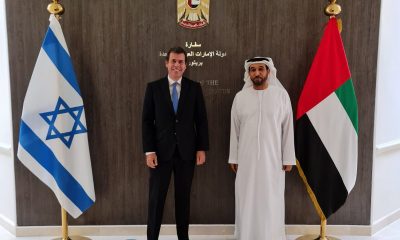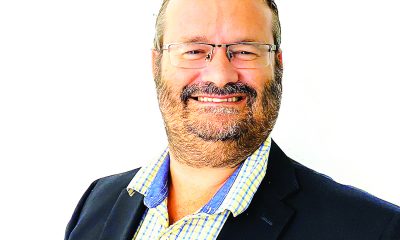
Featured Item

Israel-UAE deal brings hope of further normalisation
Bahrain, Kuwait, Mauretania, Morocco, Oman, Saudi Arabia… will these be the next Arab or Muslim states to establish full diplomatic and economic ties with Israel?
They could be, if the seeds of moderation and normalisation sprout successfully in the wake of the Israel-United Arab Emirates (UAE) deal.
Unthinkable a decade ago, the new discourse in the Middle East is about peace and prosperity, rather than the Palestinians.
This message emerged from a Zoom webinar on Monday night, ‘Israel/UAE Deal: Insights from behind the scenes’, hosted by the South African Zionist Federation. Moderated by Mpho Tsedu, chief executive of the Institute of Foreign Affairs, the speakers were Dr Nir Boms, a research fellow at Tel Aviv University and member of the Israeli Council on Foreign Relations, and Haisam Hassanein from Egypt, an expert on commercial diplomacy in the Middle East, recently based in Abu Dhabi.
On 13 August, the UAE became the third Arab country to formally recognise Israel’s right to exist, following Egypt in 1979 and Jordan in 1994. The telephone lines have been unblocked, and an El Al flight overflew Saudi airspace for the first time last week as it brought diplomats and businesspeople to Abu Dhabi. Embassies are set to open in both states soon.
Dubbed the ‘Abraham Accord’, this deal did not emerge overnight. Relations were subterranean for decades. There was substantial interaction by entrepreneurs, academics, and civil society organisations before an elite peace deal was struck. Some 500 Israeli companies already operate in the UAE, according to Boms.
“It was the right time to bring these relations into the open, from under the table,” Boms said. “It was a win-win-win formula for Israel, the United States (US) [which backed the deal] and the UAE. Their interests aligned.”
The agreement supports Israeli Prime Minister Benjamin Netanyahu’s political approach. US President Donald Trump could do with a foreign policy win heading into the November elections, to show the world and his constituency that he can, in fact, make a deal. For the UAE, it promised closer collaboration with both countries, including for military hardware and Israel’s high-tech knowhow.
“This agreement offers Israel the greatest chance to restore its image in the region,” Hassanein said. “It has been seen through the prism of Arab nationalism since the 1950s, and was negatively portrayed. The peace treaties with Egypt and Jordan never resulted in normalising people-to-people relations.” The Arab countries punished their citizens for drawing closer to Israel, which had a chilling effect.
Hassanein sees the Israel-UAE deal differently. Both sets of leaders and businesspeople have given interviews on each other’s TV stations and in newspapers. Intellectuals in both countries have supported the accords. Soon, Muslims from around the world may be praying at the Al Aqsa Mosque on the Temple Mount by travelling through Abu Dhabi. The geopolitical centre of the Arab world has shifted from Cairo, Damascus, and Baghdad to the capital cities of the Persian Gulf.
Neither analyst was naïve enough to believe this rapprochement would be universally praised. As expected, there has been opposition for the UAE’s enemies, including Iran, Qatar, and Turkey. Much of the Arab media has rubbished the deal. “But it has opened the door for more moderate voices to speak up for the first time, to speak about the advantages of peace,” Hassanein said.
Boms said that the deal could break a stalemate. “Ten years ago, everything was seen through the lens of the Israeli-Palestinian conflict. The Arab Spring changed that paradigm, but it ushered in an Islamist Winter … the Gulf States are worried about Shi’a radicalism from Iran and Sunni radicalism from ISIS and the Muslim Brotherhood, and their interests align with Israel’s.”
Hassanein noted that there is a difference between the older generation of Arab nationalists that blamed everything on Israel, and a younger generation that recognises the havoc Iran is causing. Boms agreed, noting that 70% of the Middle East’s population is under the age of 30.
Boms said the UAE offers a positive third way, different from the Islamism of Hamas and the Muslim Brotherhood, and the anti-normalisation and delegitimisation strategy of the Palestinian Authority. “The Palestinians have to realise that the train may leave without them,” said Boms. “If this deal works, if it brings better medicines, technology and jobs, it’s an alternative to old ideologies. It must therefore show tangible results and progress.”
There are early signs that this normalisation can spread to the region and to Africa. Malawi is opening an embassy in Jerusalem and Serbia, and Kosovo and Mali are talking about moving their embassies from Tel Aviv. The UAE is the only place in the Arab world where the Jewish population is growing, and a kosher restaurant has opened in Abu Dhabi.
Boms said this new discourse and mindset made South Africa’s support for the delegitimisation of Israel “obsolete”.
Asked Hassanein, “Who should South Africa applaud and support? Those demonstrating peace, tolerance and acceptance, or those who destroy and have no vision?”










